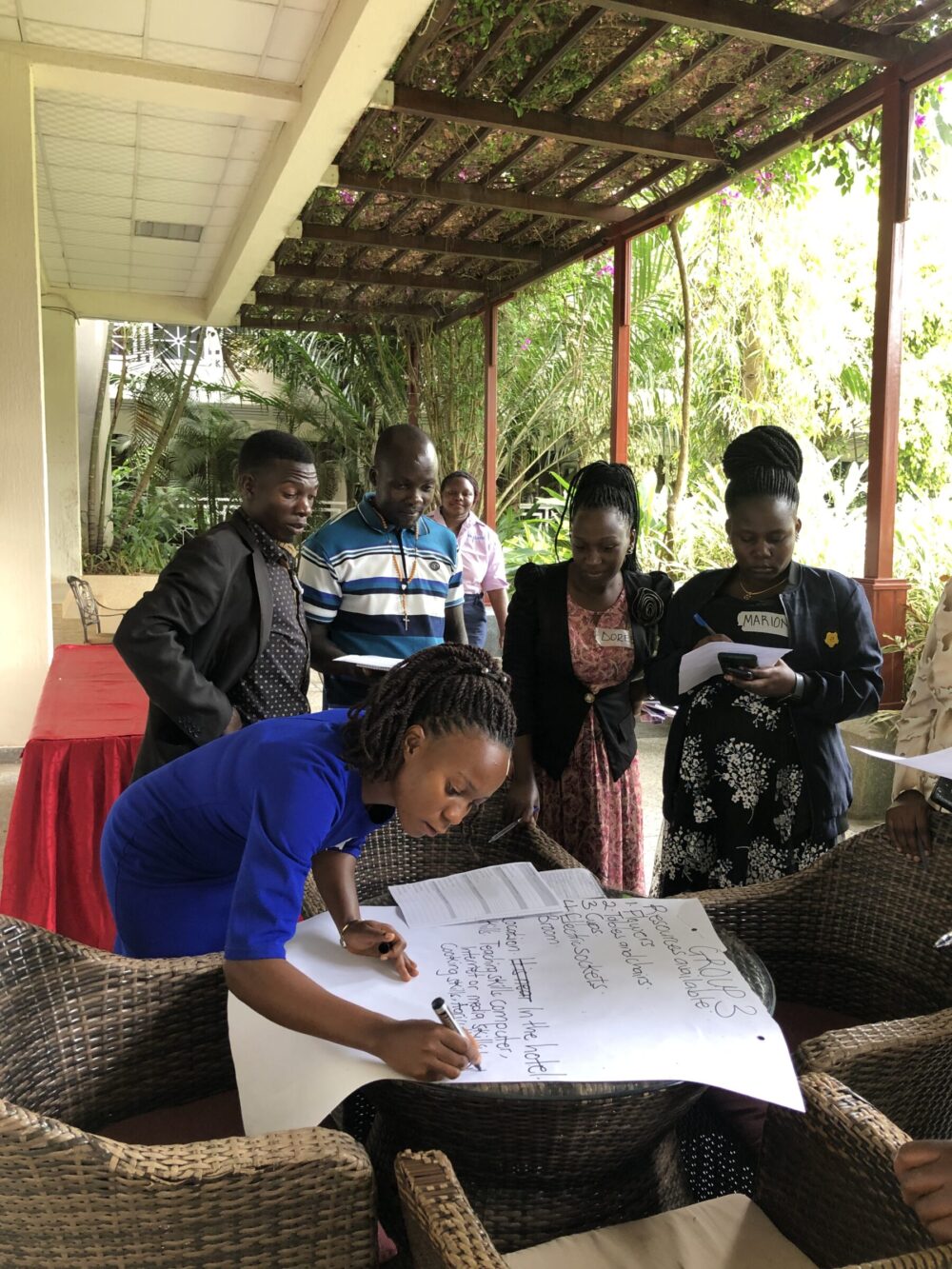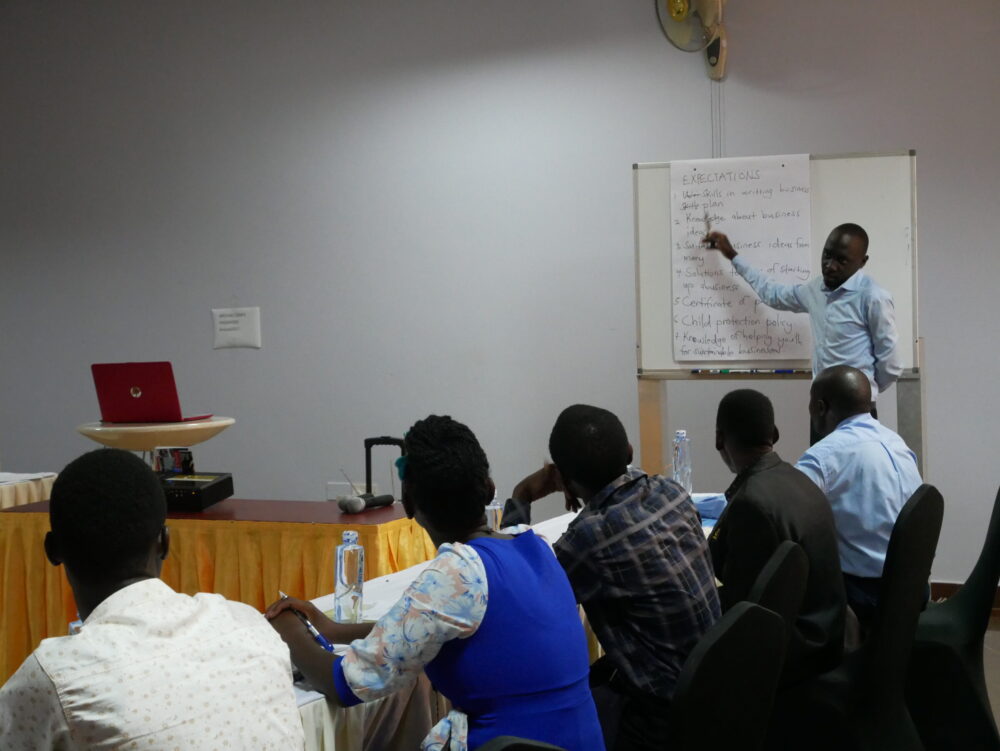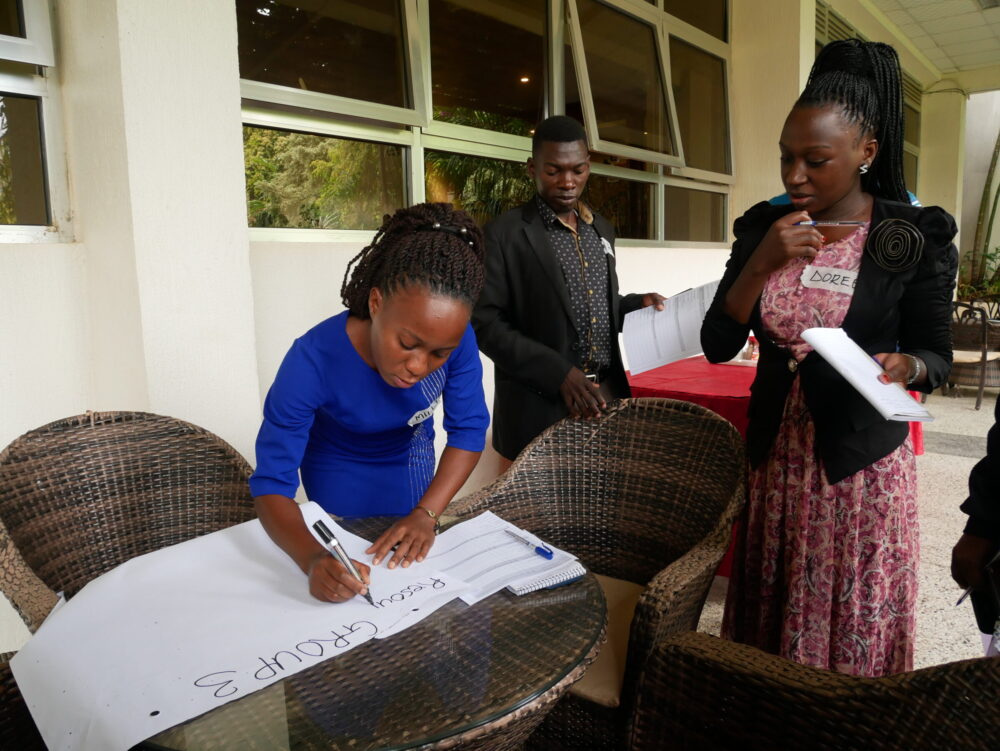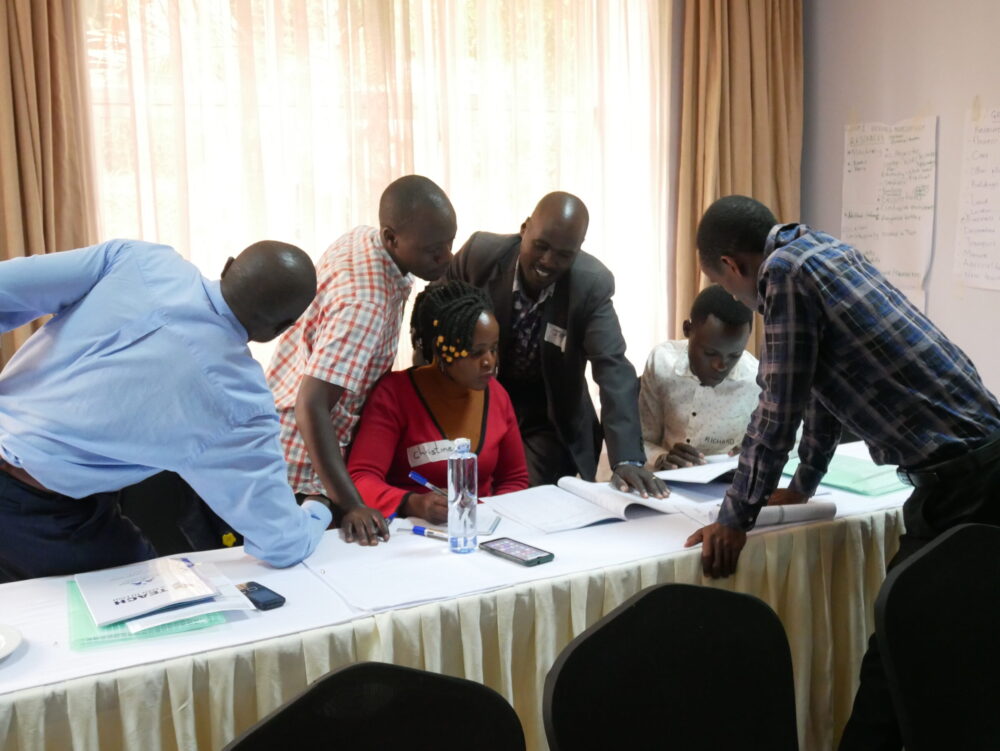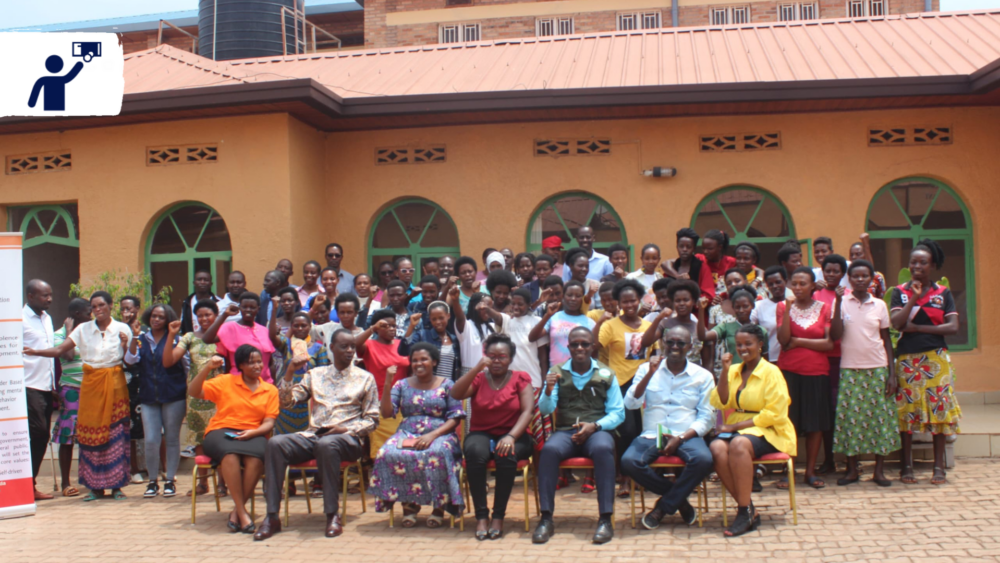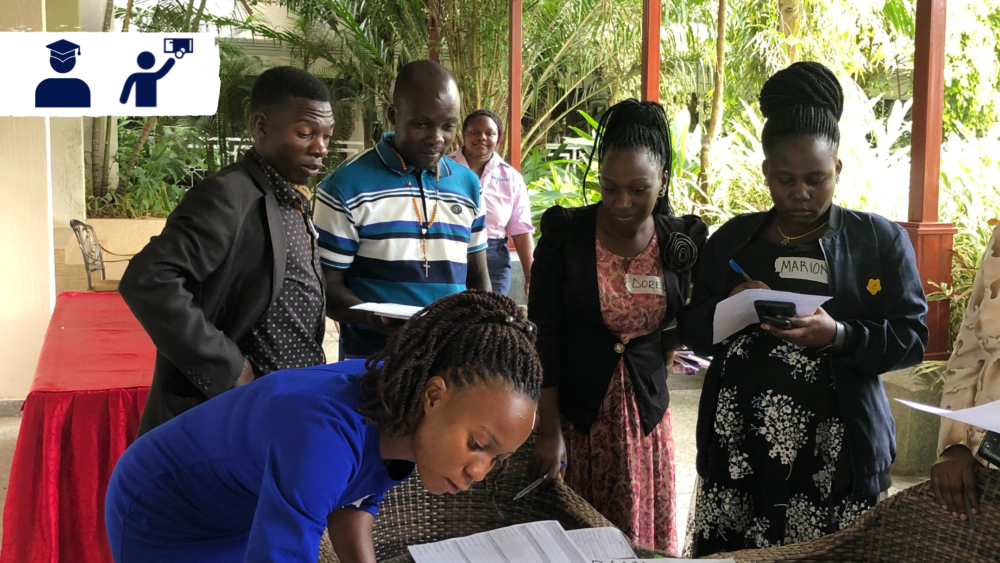
Entrepreneurship Program, Masaka
To counteract the difficult labor market situation in Uganda, teachers are being trained at 12 secondary schools to introduce young people to entrepreneurship, develop product ideas with them and support them in setting up businesses.
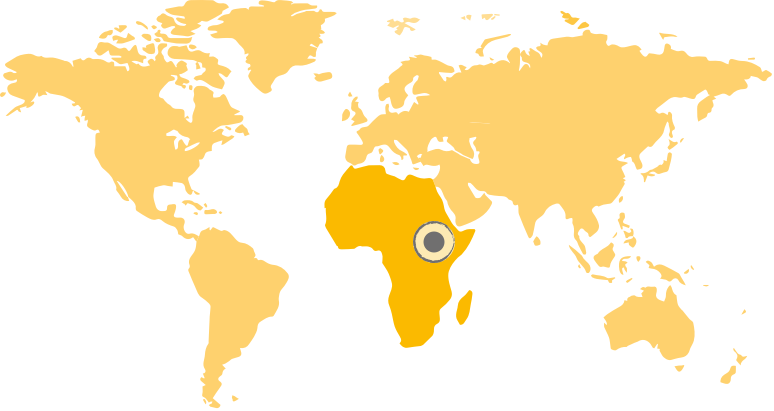
Project background
In the East African state of Uganda, more than 80 percent of the population lives in rural areas. Accordingly, the majority of the workforce earns its living from agriculture, which is the most important source of income. There is little industry and few major service industries. And despite its considerable wealth of natural resources and solid economic development, Uganda remains one of the poorest and least developed countries in the world.
The average age in this populous, multi-ethnic state is just 15.7 years. The population has been growing exponentially in recent years. Which presents a particular challenge. Although a young average population always offers the opportunity for economic growth, children and young adults must be properly supported in order to develop this potential. Currently, a large number of young people leave school without any prospect of finding employment, let alone an apprenticeship.
Target group
Around 30 teachers are being trained as part of the project. The aim is to give 1,200 students from 12 Ugandan secondary schools better opportunities for the future.
Project targets
The aim of the project is to counteract the difficult labor market situation in Uganda and to introduce young people to the subject of entrepreneurship, develop product ideas with them and support them in setting up a business. Over the next three years, teachers at 12 secondary schools in Uganda will be trained and supported so that they are able to guide the students. During the three years of the project, the teachers will impart basic entrepreneurial knowledge to the students in the final classes of secondary schools. This is not only done theoretically, but the young people are motivated to actively participate in the lessons. Within the framework of working groups, the students are instructed to gain their first practical entrepreneurial experience in small student-run companies. The project has multiple positive effects: it strengthens the self-confidence of the young people and their own responsibility, prepares the young people for a possible career orientation while they are still at school, promotes their training skills, teaches them the basics of economic activity, encourages their creativity, teaches them key qualifications for putting an entrepreneurial idea into practice and, last but not least, contributes to their personal development. The young people can use this knowledge to become self-employed after graduation, generate an income and thus support their families financially. It also generates additional income for the schools, which leads to improved living and learning conditions at the schools.
What are you supporting
With your help, 30 teachers at 12 Ugandan secondary schools are being trained in entrepreneurship so that they can impart basic entrepreneurial knowledge to 1,200 students, who can then set up their own small student companies or start-ups and thus improve their income situation and future prospects.

